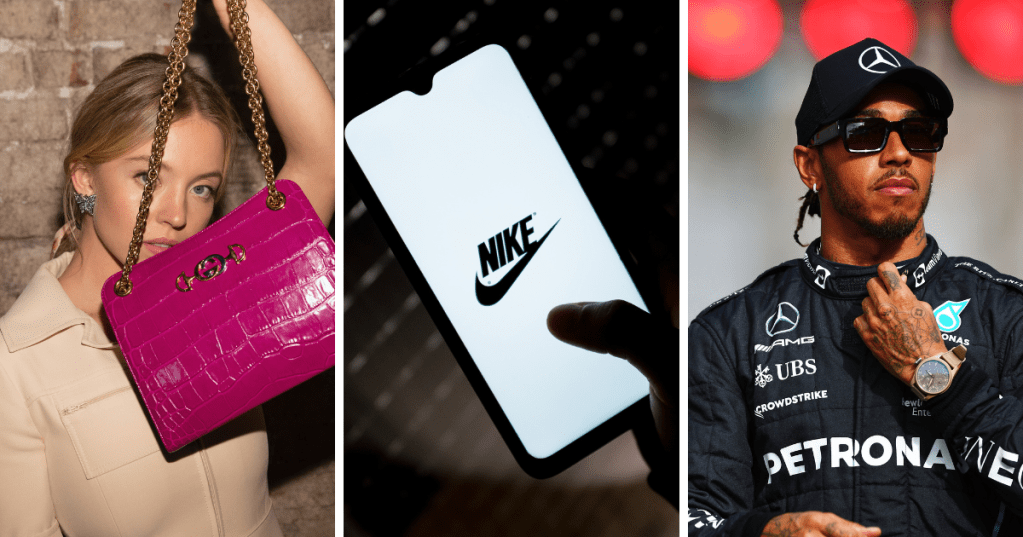Amazon, Facebook, Nike, Gucci, TikTok, and Mercedes-Benz are all using the metaverse to drive sales and engagement. In just three years’ time, 30% of organisations in the world will have products and services ready for the metaverse – will you be one of them?

Just as we didn’t know what the future of the internet held when it launched in the 80s, right now no one really knows what the Metaverse will become in the years ahead. Most experts believe the metaverse will one day be a huge virtual world where people interact, shop, work, and learn – all from their kitchen bench or couch. Right now, that doesn’t exist, but the metaverse is much more than just 13-year-olds spending their days on Roblox. There are many ways the metaverse can be used to enhance the sales experience and create opportunities, and now is the time to jump in.
To get to the bottom of what the real opportunity is for businesses we interviewed leading experts in the field.
Michelle Schuberg is CEO at Curiious, a plug-and-play metaverse solution designed for businesses. Curiious is already working with some of the world’s most recognisable brands to provide immersive learning, training, and events which engage employees and partners no matter where they are in the world. “Gartner predicts that by 2026, 30% of the organisations in the world will have products and services ready for the metaverse. That being said, the metaverse is here now and is already being used by the world’s largest brands,” she says.

Michelle says that the metaverse is the perfect platform to communicate with all manner of audiences within sales, including internal sales forces, customers, and end-consumers. “Basically, anyone you want to bring closer to your product or brand without needing physical proximity,” she explains.
Michael Alf is a Co-Founder of Beyond the Obvious, which helps organisations and individuals to understand, customise and conquer digital transformation in the era of the metaverse. “It is really important to consider how this [the metaverse] experience differs from a Zoom or Teams meeting. There is more creativity involved to create a unique and immersive experience for potential customers and teams,” he explains.
According to a report by Gartner, by 2025, 80% of sales interactions will occur in digital channels, and the opportunities for sales activities in the metaverse are exciting. “When you consider sales activities, you can think of utilising a metaverse environment (VR or 3D Browser-based) to provide your customers with a new immersive experience,” he says. “It is a lot easier to showcase products but also services. The customer can even explore products themselves – maybe even guided by intelligent avatars – before a meeting with the salesperson.”
Michelle agrees, comparing traditional online experiences to looking at a flat brochure. “As more of life’s ‘big ticket items’ such as cars are being purchased online, a metaverse platform lets buyers experience the product in a far more fulsome way. The perpetual 3D nature of the metaverse enables an experience akin to walking into a showroom,” she says. With 80% of car shoppers now open to an online vehicle purchase this is more important than ever.

The other big opportunity that comes with the metaverse is the data it yields. The ability to measure engagement and understand the data and analytics behind customer behaviour helps us continually test, measure, and improve the sales proposition.
But don’t throw out your business cards and retreat to your couch, just yet. I believe that sales right now and in the next few years should be about blending the best of both worlds – the best of the old that still stands the test of time, with the best of the new – trying, testing, and importantly, embracing new technologies.
“From our perspective, it is an evolution and not a revolution, “Michael says. “You do not suddenly move all your marketing and sales into the metaverse.”
THE LIST
“We now see the early adopters in B2B, like Amazon, Facebook, TikTok, and Mercedes-Benz – the first cohort of companies tapping into the metaverse before it becomes commonplace. We would expect a time horizon of two to five years for wider adoption. The fact that the metaverse is not yet clearly defined or developed is not a reason not to get started. In 2023, companies have no reason not to use these technologies any longer,” he stresses.
As with anything, there are advantages of being an early mover, especially in B2B. “There is the opportunity to differentiate your company and products/services from others. And because that field is highly creative, new ideas and models will evolve. But to swim with the others, you have to get wet,” Michael says.
Look back on the week that was with hand-picked articles from Australia and around the world. Sign up to the Forbes Australia newsletter here.
“There is also the opportunity to position your company and your department to potential employees. This is hugely underestimated and offers great opportunities to win and retain talent.” And that’s a big deal right now.
Michelle agrees that it’s time to jump in if it’s for the right reasons. “There is so much more to be gained from the underlying technology than simply dressing as avatars or having a one-off social interaction. Whether the impetus is to simplify communications, moving away from a siloed and disjointed approach to provide a single ‘point of truth’, or to make more of less – leveraging existing materials and fewer salespeople with full impact, the metaverse offers all of this and more. Additionally, research into adult learning traditional modes, so using a modality like metaverse to deliver ‘learning’ and pairing it with in person for relationship building will yield the best ROI”
Further to that, for companies to be successful in this, leaders need to be on board. “Unlike Web2 and many previous tech innovations, the benefit of the metaverse will not only be led by the CIOs and CDOs but by the chief executives with a vision for their future organisation: how we work, how we engage with stakeholders, how we execute ESG, how we design, manufacture and sell our products and services.”
As with anything, the challenge will be upskilling sales teams and helping them embrace the change. Sales is traditionally a relationship game, which is still true, but where those relationships are built is up for debate.
See you in the metaverse.
Abbie White is a leader in the field of high-performance sales, and is the founder of sales transformation company, Sales Redefined.



